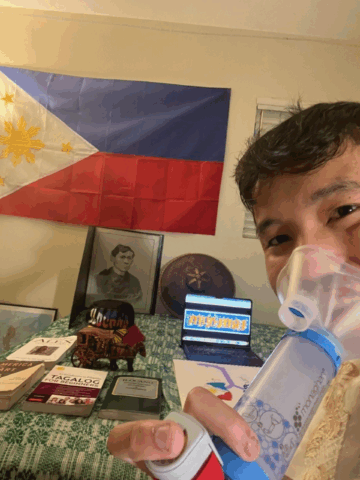What neurocognitive effects do childhood cancer survivors face and how can parents support them?
By Drs. Tiffany Torigoe-Lai, Eric Proffitt and Diana Cohen
There are many ways a cancer diagnosis and treatment affect a child’s life. Childhood cancer interrupts a child’s typical development throughout the course of their treatment. Often restricted from attending school, socializing with friends, or engaging in sports or other social activities, once children complete treatment they can experience some sense of returning to normalcy.
However, returning to school following treatment can bring mixed feelings: Youth might not have seen friends in many months, they may look physically different than before treatment, and they may worry that their peers have moved on. While caregivers and children may welcome the return of structure and routine that school and academics provide, some caregivers are surprised their children may show difficulties in their academic abilities and learning skills after cancer treatment. Some patients may require special academic support to help development and learning, which can be another major stressor families will have to face following cancer treatment.
Here, CHOC psychologists Drs. Tiffany Torigoe-Lai and Eric Proffitt, along with CHOC neuropsychologist Dr. Diana Cohen, provide an overview of these late effects of childhood cancer treatment to help caregivers, families and schools be more informed and better support patients as they return to school following treatment.
What are late effects of childhood cancer?
Many survivors of childhood cancer experience side effects from treatment or direct impacts from disease that can cause physical, cognitive (e.g., difficulties with attention, processing speed and/or memory) and psychological problems many years after treatment ends. A subgroup of patients may experience specific negative effects, related to disease or treatment, on developing brain systems. The impacts on cognitive functioning following completion of treatment are referred to as neurocognitive late effects. Roughly 35 to 65% of patients experience some type of late effect, depending on diagnosis and treatment.
Who is affected by late effects of childhood cancer?
Children and adolescents whose central nervous systems are directly impacted by disease or treatment may be at risk for neurocognitive late effects. Children with brain tumors and children with acute lymphoblastic leukemia are also at increased risk. Size and location of brain tumors, exposure to cranial radiation, and intrathecal chemotherapy (administered into the spinal cord) are all components of treatment that contribute to the development of neurocognitive late effects. Additional risk factors include exposure to treatment at a younger age and higher dose exposures of radiation and/or intrathecal chemotherapy.
When do late effects of childhood cancer occur?
Survivors of childhood cancer may show neurocognitive late effects months to years following completion of treatment. As new learning may be impacted, childhood cancer survivors may appear to fall further behind peers. Learning deficits may become more apparent during transitions (i.e., elementary to middle school, middle school to high school).
What do neurocognitive late effects look like?
These effects can vary, but here are some possible indicators:
- Overall lowered or decreased IQ/cognitive ability
- Slower processing speed
- Memory difficulties
- Executive functioning (i.e., implementing purposeful and goal-oriented behavior) challenges:
- Inhibition
- Working memory (i.e., holding information in one’s head for a brief period of time and manipulating it)
- Cognitive flexibility (i.e., switching back-and-forth between task requirements)
- Planning and problem solving
- Attention difficulties
- Gross/fine motor deficits
- Social difficulties
- Difficulty managing emotions
- Deficits in adaptive or sensory skills (e.g., vision, hearing loss)
How can parents help children with neurocognitive late effects of cancer?
Childhood cancer survivors can benefit from completing neuropsychological evaluations to identify areas of strengths and weaknesses (from the impact of neurocognitive late effects) that can be used to inform home and school supports and/or academic accommodations. School-based testing can be an additional support to help identify areas of academic difficulty because of neurocognitive impacts secondary to disease or treatment.
Coordinate with your child’s school to improve information about a child’s cancer history, impacts of their treatment, and other related medical information. Partnering with your child’s Psychosocial Team can help provide additional support to help inform schools about the impact of cancer on your child’s ability to learn. Many childhood cancer survivors required formalized educational supports, such as 504 plan or Individualized Education Program (IEP), to receive comprehensive school and classroom accommodations or curriculum modifications.
Some survivors may also benefit from additional services (e.g., physical therapy, occupational therapy, speech/language services or adaptive education) in the school setting. Ongoing and frequent monitoring of academic progress can help identify additional areas of impact as childhood cancer survivors continue their educational journey. Talk with your child’s oncologist to make a referral for comprehensive neuropsychological testing.
Get more expert health advice delivered to your inbox monthly by subscribing to the KidsHealth newsletter here.
Get mental health resources from CHOC pediatric experts
The mental health team at CHOC curated the following resources on mental health topics common to kids and teens, such as depression, anxiety, suicide prevention and more.





